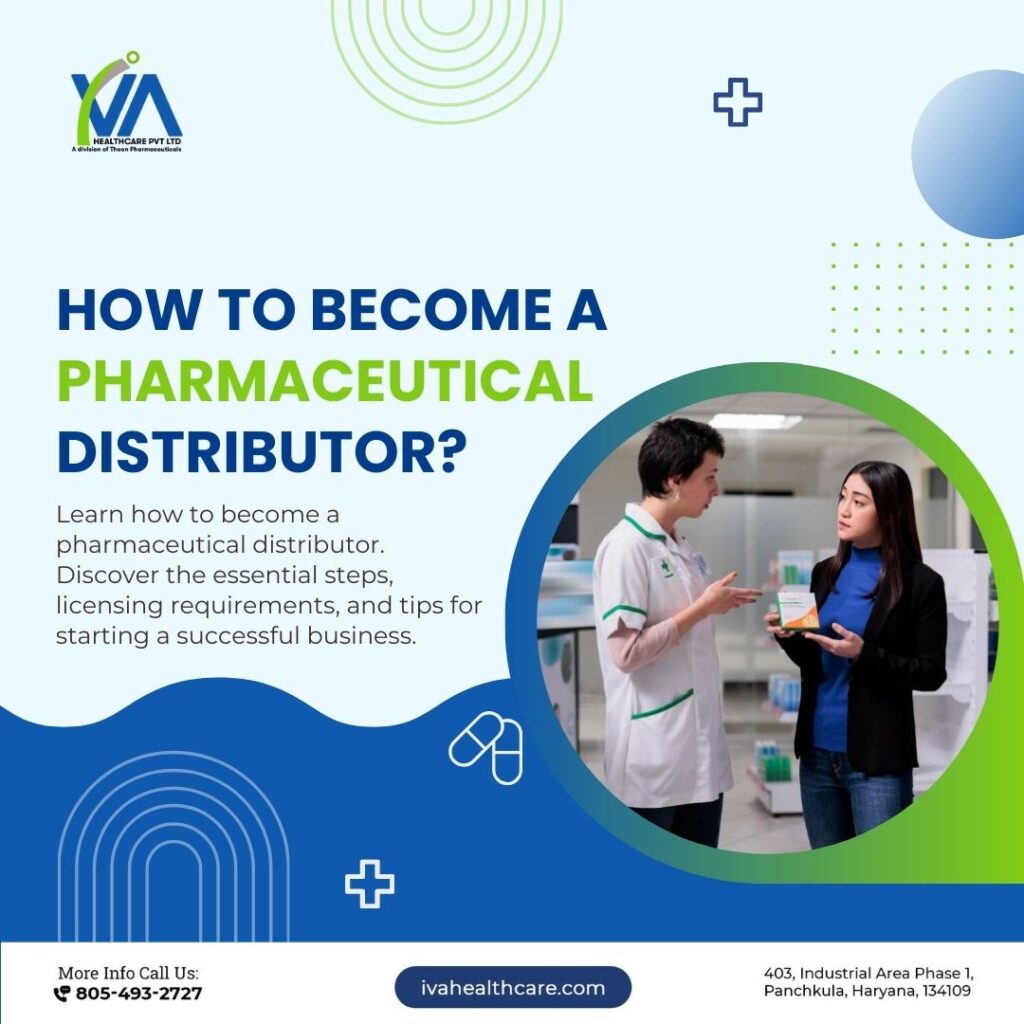The pharmaceutical industry plays a vital role in global healthcare, ensuring essential medications reach patients around the world. Within this complex ecosystem, pharmaceutical distributors act as the bridge, connecting manufacturers with pharmacies, hospitals, and other healthcare providers. If you’re interested in a career in the pharmaceutical sector, becoming a pharmaceutical distributor presents a rewarding and dynamic opportunity.
This blog explores the essential steps and considerations involved in becoming a pharmaceutical distributor, equipping you with the knowledge to navigate this exciting path.
Understanding the Landscape
The world of pharmaceutical distribution is vast and multifaceted. Here’s a breakdown of the key players:
- Pharmaceutical Manufacturers: These companies develop, research, and manufacture prescription and over-the-counter medications.
- Pharmaceutical Distributors: These companies act as intermediaries, purchasing medications in bulk from manufacturers and distributing them to healthcare providers.
- Wholesalers: Wholesalers typically deal in large quantities and may sell to other distributors or directly to hospitals and large healthcare chains.
- Retailers: Retailers like pharmacies sell medications directly to patients.
The Role of a Pharmaceutical Distributor
Pharmaceutical distributors play a critical role in ensuring the timely and efficient delivery of medications across the healthcare supply chain. Their responsibilities encompass:
- Sourcing and Procurement: Distributors source medications from various manufacturers, negotiating bulk purchase agreements and maintaining inventory levels.
- Storage and Logistics: Distributors possess specialized warehouses that meet strict temperature and humidity control requirements to ensure medication integrity. They also manage efficient logistics systems to deliver medications promptly to various locations.
- Order Fulfillment: Distributors process orders from pharmacies, hospitals, and other healthcare providers, ensuring accurate and timely delivery.
- Regulatory Compliance: The pharmaceutical industry is heavily regulated. Distributors must adhere to stringent regulations regarding the storage, handling, and distribution of medications.
Becoming a Pharmaceutical Distributor: The Steps
Taking the plunge into pharmaceutical distribution requires careful planning and execution. Here’s a roadmap to guide you:
- Education and Training: While a specific degree may not be mandatory, a strong foundation in business, pharmacy, or a related field is highly beneficial. Pursuing relevant certifications in areas like supply chain management or pharmaceutical regulations can further enhance your qualifications.
- Develop Business Skills: Success in pharmaceutical distribution hinges on strong business acumen. Develop skills in areas such as negotiation, contract management, financial analysis, and marketing.
- Gain Industry Experience: Consider seeking internships or entry-level positions within pharmaceutical companies or established distributors. This will provide invaluable practical experience and industry insights.
- Licensing and Permits: Obtaining the necessary licenses and permits for pharmaceutical distribution is crucial. Requirements vary by region, so consult with local authorities to understand the specific regulations and licensing procedures.
Building Your Pharmaceutical Distribution Business
Once you have the necessary education, experience, and licensing, it’s time to establish your distribution business. Here are some key considerations:
- Business Model: Decide on your business model. Will you specialize in a specific therapeutic area or offer a broader range of medications? Will you target a specific geographic location or operate nationally?
- Develop a Business Plan: A comprehensive business plan outlining your target market, financial projections, marketing strategy, and operational details is essential.
- Secure Funding: Launching a pharmaceutical distribution business can require significant financial investment. Explore funding options such as bank loans, angel investors, or venture capital.
- Establish Relationships: Building strong relationships with pharmaceutical manufacturers and healthcare providers is crucial for success. Network actively and showcase your expertise and commitment to quality service.
- Invest in Technology: Implementing robust inventory management systems, order processing software, and logistics tracking tools is essential for efficient operations.
The Challenges and Rewards of Pharmaceutical Distribution
The pharmaceutical distribution industry is not without its challenges. Here are a few to consider:
- Competition: The market is competitive, with established players holding a significant market share. Differentiating your services and offering exceptional customer value will be key.
- Regulation: Stringent regulations require ongoing compliance efforts to ensure adherence to all applicable laws and quality standards.
- Price Fluctuations: The pharmaceutical industry is susceptible to price fluctuations, impacting profit margins. Effective inventory management and cost-control strategies are essential.
Despite the challenges, pharmaceutical distribution offers a plethora of rewards:
- Stability and Growth: The pharmaceutical industry is a stable sector with a consistent demand for medication distribution.
- Making a Difference: You play a vital role in ensuring patients have access to the medications they need to improve their health.
- Entrepreneurial Freedom: If you choose to establish your own distribution company, you’ll enjoy the freedom and challenges of building your own business.
Becoming a pharmaceutical distributor offers a dynamic and rewarding career path within the healthcare sector. It requires a blend of business acumen, industry knowledge, and a commitment to quality and compliance. By carefully planning your journey, acquiring the necessary skills and licenses, and building strong relationships within the industry, you can position yourself for success in this exciting field.

